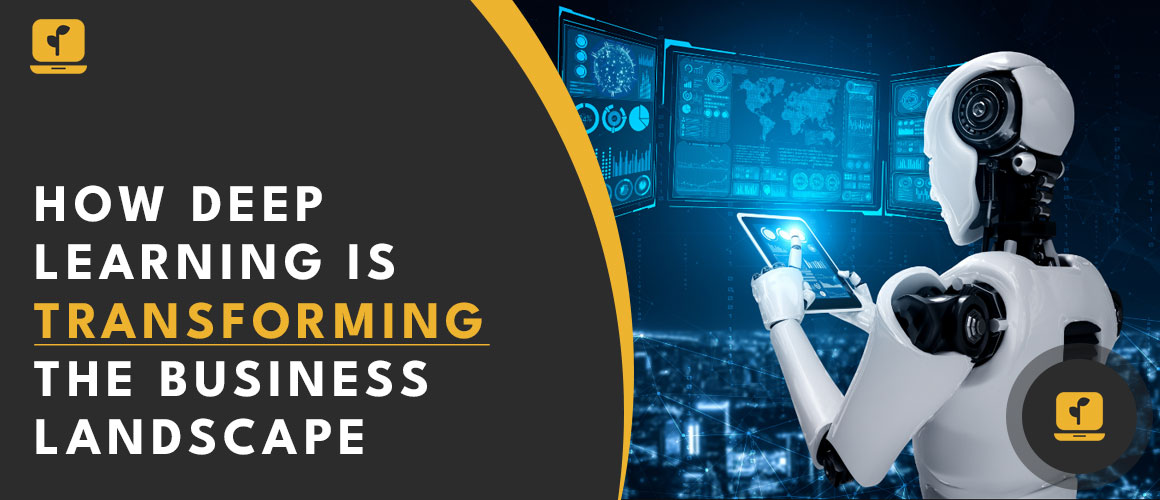As technology continues to evolve, businesses must also adapt to stay competitive. One of the most significant changes in recent years has been the rise of deep learning. This advanced form of machine learning is transforming the business landscape, enabling companies to streamline operations, improve customer experiences, and drive innovation.
Table of Contents
In this article, I will explore the various applications and advantages of deep learning, as well as its impact on the job market.
Introduction to Deep Learning
Deep learning is a subset of artificial intelligence (AI) that involves training neural networks to recognize patterns in data. Unlike traditional machine learning algorithms, which require human intervention to identify relevant features, deep learning models can automatically learn to extract meaningful information from raw data. This makes deep learning particularly well-suited for tasks that involve large datasets, such as image and speech recognition.
Understanding Deep Learning Models
At the heart of deep learning are neural networks, which are composed of interconnected nodes that process and transmit information. These networks can be trained using a variety of algorithms, including supervised learning, unsupervised learning, and reinforcement learning. In supervised learning, the network is given labeled data, and the goal is to learn a mapping between inputs and outputs. Unsupervised learning, on the other hand, involves finding patterns in unlabeled data. Reinforcement learning is a type of machine learning that involves training an AI agent to make decisions in a dynamic environment.
Applications of Deep Learning is Transforming the Business Landscape
Deep learning has numerous applications in the business world. For example, companies can use deep learning to analyze customer data and predict future behavior, enabling them to tailor marketing campaigns and improve customer retention. Deep learning can also be used to automate processes, such as fraud detection, language translation, and image recognition. In the healthcare industry, deep learning is being used to develop personalized treatment plans based on patient data.
Real-World Examples of Deep Learning in Action
One of the most famous examples of deep learning is AlphaGo, a computer program developed by Google’s DeepMind that defeated the world champion at the ancient Chinese game of Go. Another example is facial recognition technology, which is used by law enforcement agencies to identify suspects. Deep learning is also being used to develop autonomous vehicles, with companies such as Tesla and Waymo investing heavily in this technology.
The Impact of Deep Learning on the Job Market
As deep learning continues to gain traction, the demand for skilled professionals in this field is growing. According to a report by LinkedIn, deep learning is one of the fastest-growing skills among professionals. Companies are looking for data scientists, machine learning engineers, and AI specialists who can develop and deploy deep learning models. However, this demand is also creating a shortage of talent, with some estimates suggesting that there may be a shortfall of up to 250,000 data scientists by 2024.
Advantages of Deep Learning Specialization
Despite the shortage of talent, there are many advantages to specializing in deep learning. For one, it is a highly rewarding field that offers the opportunity to work on cutting-edge technology. Additionally, deep learning specialists command high salaries and are in high demand. Finally, deep learning is a field with a bright future, as more and more companies are investing in this technology to gain a competitive edge.
Key Concepts of Deep Learning
To become a deep learning specialist, it is important to understand the key concepts of this field. These include supervised and unsupervised learning, backpropagation, and neural networks. Supervised learning involves training a model on labeled data, while unsupervised learning involves finding patterns in unlabeled data. Backpropagation is a technique used to adjust the weights in a neural network to minimize the error between the predicted output and the actual output. Neural networks are composed of interconnected nodes that process and transmit information.
Deep Learning Pioneers
Yoshua Bengio, Geoffrey Hinton, and Yann LeCun are considered the pioneers of deep learning. These three researchers were awarded the Turing Award in 2018 for their contributions to the field.
Bengio is a professor at the University of Montreal and is known for his work on neural language models. Hinton is a professor at the University of Toronto and is known for his work on backpropagation and deep belief networks. LeCun is a professor at New York University and is known for his work on convolutional neural networks.
Deep Learning Courses and Certifications
If you are interested in pursuing a career in deep learning, there are many courses and certifications available. Some of the most popular options include the Google Deep Learning Specialization, the Coursera Machine Learning Specialization, and the Udacity Deep Learning Nanodegree. These programs provide comprehensive training in deep learning concepts and techniques and can help you develop the skills you need to succeed in this field.
Conclusion – The Future of Deep Learning and Its Potential for Business Transformation
As technology continues to evolve, deep learning is poised to play an increasingly important role in the business world. From improving customer experiences to automating processes, deep learning has numerous applications that can help companies gain a competitive edge. However, to fully realize the potential of this technology, it is important to invest in talent development and education. By doing so, businesses can unlock the full potential of deep learning and transform the way they operate.












